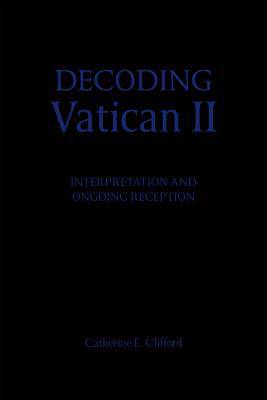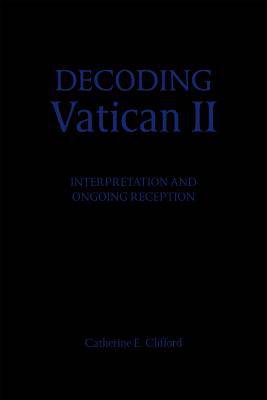
Door een staking bij bpost kan je online bestelling op dit moment iets langer onderweg zijn dan voorzien. Dringend iets nodig? Onze winkels ontvangen jou met open armen!
- Afhalen na 1 uur in een winkel met voorraad
- Gratis thuislevering in België vanaf € 30
- Ruim aanbod met 7 miljoen producten
Door een staking bij bpost kan je online bestelling op dit moment iets langer onderweg zijn dan voorzien. Dringend iets nodig? Onze winkels ontvangen jou met open armen!
- Afhalen na 1 uur in een winkel met voorraad
- Gratis thuislevering in België vanaf € 30
- Ruim aanbod met 7 miljoen producten
Zoeken
Omschrijving
Fifty years on, Catholics are confronted with competing narratives concerning the event of the Second Vatican Council as well as the meaning and value of its teachings. How are we to make sense of the various characterizations of the council, often in polemical tones, as a disastrous departure from tradition, a disappointing compromise, or a moment of measured reform? All agree that Vatican II marks a "big turn" in the history of Catholicism marked by a dialogical engagement with other Christians, other religions, and the modern world. To fully comprehend the event of Vatican II and to correctly interpret its teachings requires a deeper appreciation of the new self-consciousness of the church as an actor in history, and of its mission of service to the whole human family. +
Specificaties
Betrokkenen
- Auteur(s):
- Uitgeverij:
Inhoud
- Aantal bladzijden:
- 144
- Taal:
- Engels
- Reeks:
Eigenschappen
- Productcode (EAN):
- 9780809148578
- Verschijningsdatum:
- 3/06/2014
- Uitvoering:
- Paperback
- Formaat:
- Trade paperback (VS)
- Afmetingen:
- 112 mm x 160 mm
- Gewicht:
- 113 g

Alleen bij Standaard Boekhandel
+ 35 punten op je klantenkaart van Standaard Boekhandel
Beoordelingen
We publiceren alleen reviews die voldoen aan de voorwaarden voor reviews. Bekijk onze voorwaarden voor reviews.











